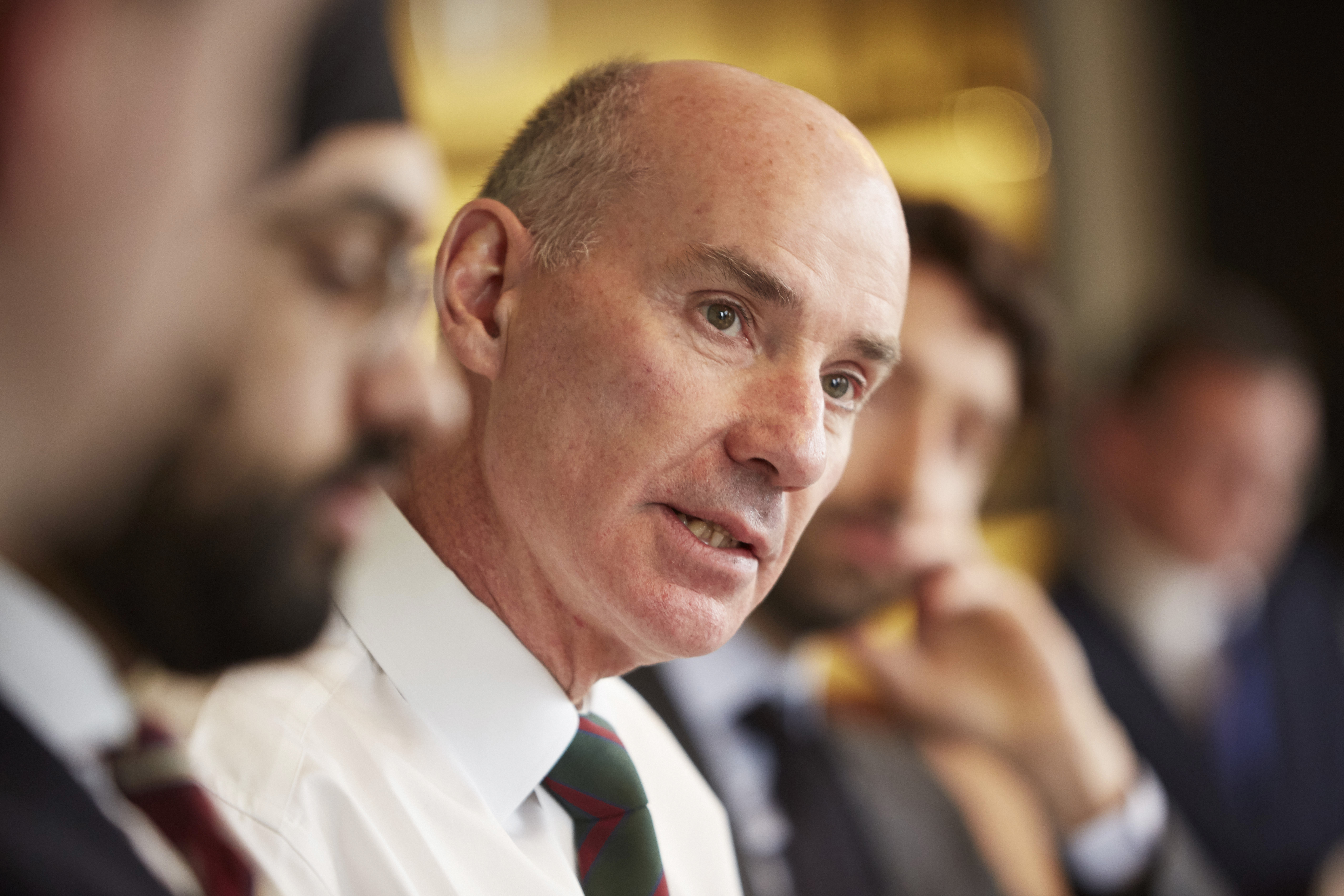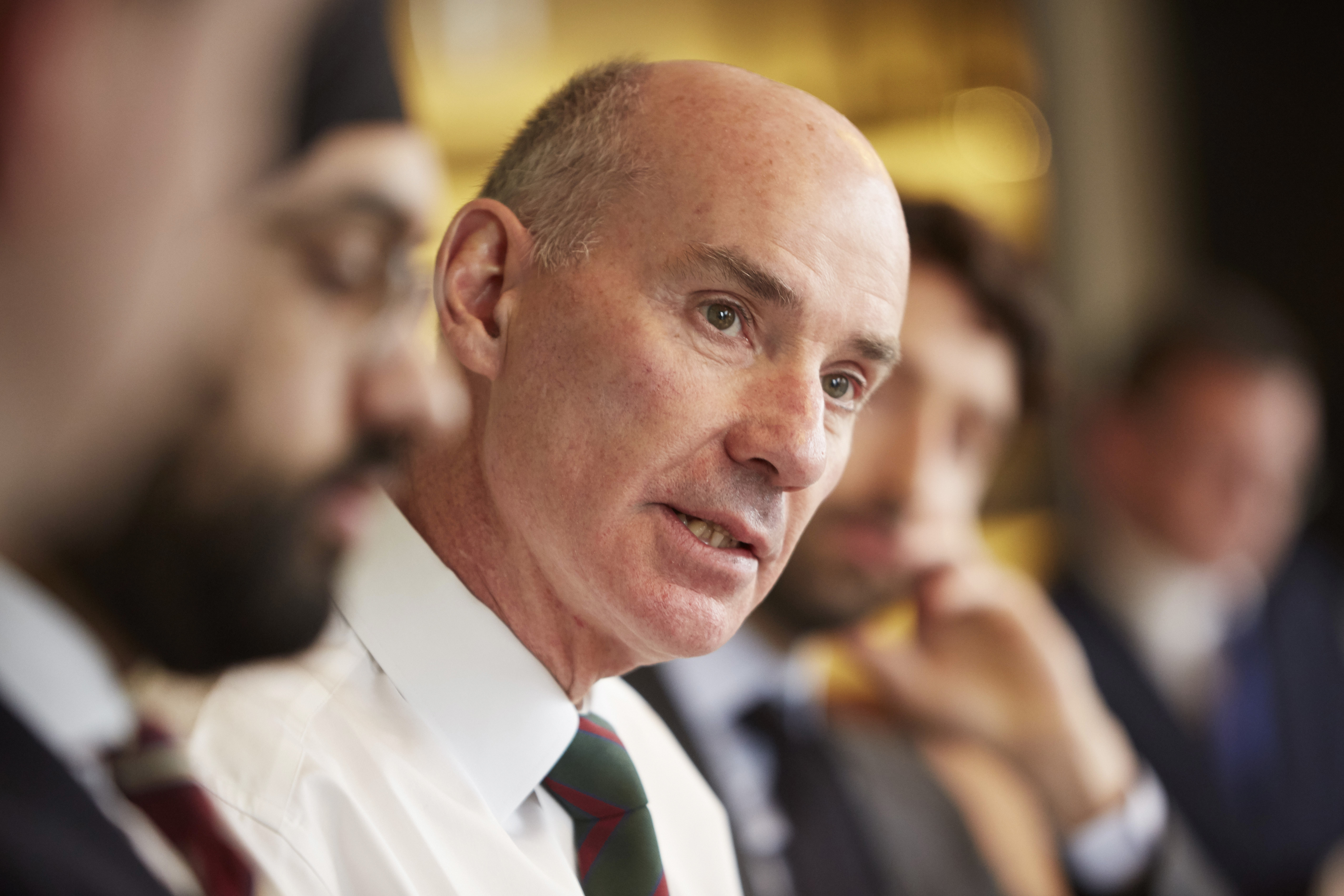What are the main forces currently driving investors’ attitudes to responsible and impact investing?
Renato Guerriero: When we look at the investment industry today, it can be likened to the automotive industry. A few years ago most people would buy a car based on its technical capabilities speed, power and also status; nowadays people are looking more towards safety, efficiency, the CO2 impact. And the interesting thing is that they are prepared to pay a premium for these new criteria.The same thing is happening in the investment industry. Investors are looking past ‘outperforming a benchmark’ and simply achieving returns. They are increasingly factoring in risk mitigation from a more holistic perspective, limiting their reputational risk, the impact of their investments on the environment and climate concerns. These items are very high on the agenda of many asset owners.
Bob Hymas: Can I just pick up on that analogy though as Tesla now has a bigger market cap than Ford. Why are people buying Teslas? Is it because they are electric or is it because of all the other gadgets and sophistication that they bring to the driving experience? You can debate that; it’s relevant, because what you heard across the industry and at pensions conferences over the last two or three years was almost an insistence that pension schemes should invest with ESG as being the priority and they should be thinking about the environment. To me it’s always about economics first and then ESG. ESG is part of it, but actually what you’re looking at is economics. Does it suit the pension scheme, what are its objectives, how does investment fit in with it? Rather than going down a mandated approach that x% of the portfolio needs to be in an infrastructure fund or carbon neutral or renewables.
Edward Siegel: Unless somehow that’s something that the pension holders themselves have expressed a desire for, I agree it shouldn’t be mandated. But what we often hear is that the individuals who are actually benefiting from these plans, if given the choice of allocating a certain amount of their portfolio to social impact investments, or certainly so-called responsible investments, they would say, “Well of course; I don’t want to invest irresponsibly”. But I think it’s difficult for the managers to hear those individual voices sometimes.
Julien Barral: We’ve heard that members were putting pressure on trustees or managers to evolve and we’ve seen some clients considering low carbon as a first step, because they have pressure from the actual members wanting to shift the portfolio.
Robert De Guigné: It’s very different in each country. I think there are four main reasons driving institutions towards ESG. First, regulation, because the regulators are moving pretty quickly. Second is risk, particularly on the reputational side for a pension fund; it’s very important to save their reputation and for foundations or other institutions, it’s also very important for them. The third reason is values, now people are increasingly writing down a code of ethics or charters to define their values and they want their investments to be related to these, so values built out of the ESG that aren’t founded in pure finance. And, the fourth reason is all about long-term returns.
Hymas: I agree the economic argument is that if you want sustainable investment which is what pension schemes are in the long-term game for, then ESG becomes increasingly important and I think it gets there through natural development and through other regulation outside of the pension scheme environment, rather than insistence that the pension scheme is instructed and mandated to invest. With something like Tesla, to go back to that, it isn’t because everyone suddenly wants to go out and buy an electric car, it’s because actually the electric car meets an awful lot of the requirements of a car but also is the future and people start to see it as the future and the price becomes more appropriate and that’s the equivalent of the long-term return.
David Russell: I think that’s the critical starting point for a UK pension fund; this has to be based on financial returns and that’s where we start from, our fiduciary responsibility. There will be differences in different markets around the world because they have a different fiduciary framework, but from a UK perspective, the primary thing we have to do is make the returns for the pension fund. Our view is that integrating ESG information into our investment decision making process will help us do that and that’s why we play a role in responsible investment in the USS and across the UK.
We have seen HSBC and NEST implement a carbon tilt in their default funds. How much of a role does member pressure play? Hymas: I struggle slightly with the idea of pressure from the membership. If the trustees listened to every member’s individual preference, it would be very difficult to make decisions. I accept that if it is a membership as a whole, then it’s difficult to ignore, but ultimately, and I know the response isn’t liked, trustees have got a responsibility to achieve a certain return within risk parameters; that is what the objective is.
Russell: Members may say they want to invest their money in ethical funds, but when they are given the choice, for example, in DC funds, they often default to the default fund. USS has member groups that have put pressure on the scheme to divest from issues such as climate change, defence companies and tobacco. It’s a large group within our membership but still only represents a few thousand out of a 350,000-400,000 total membership. We do however, take their activities seriously and we do respond to every contact we have with our members on these issues.
Trevor Allen: I think we sometimes have to decouple different issues in ESG. Sometimes we just muddle everything together in ESG as all being equally weighted and there are certain parts of it that you can make an immediate impact on. I think sometimes financially it makes more sense modelling-wise to look at the transition of low carbon and that’s what we were talking about with Tesla. Sometimes there’s more of an impact from the end investor that makes a bit more immediate sense when we’re dealing with companies that have human rights issues going on, etc. So is it right to invest in a company where they violate typical standards? These issues could have balance sheet impacting implications on the company itself in to the future.
It seems that divestment is a last resort approach for many investors with engagement the preferred route. Do you agree? Hymas: I think it depends on the size of the scheme because there are 9,000 defined benefit schemes in the UK; a lot of those are relatively small, working through pooled vehicles, and so how much opportunity do they really have? I think trustees need to create an understanding. How much they can do about it at the moment is hard to say; larger schemes can but if I was to use the example of the smaller scheme I’m working with, it’s the last thing that’s going to be on their mind at the moment; they’ve got other issues they need to deal with.
Russell: We have actually been engaging for a number of years now by ourselves. We manage most of our assets internally, including the vast majority of our public equities, for example, so we take a very active role in stewardship – and that’s been the policy since 1999. Getting back to the fiduciary duty question, if you look at what the Law Commission says we believe that it is difficult to divest on purely non-financial grounds, and the Law Commission’s recommendation were in any case not adopted into UK pensions law.










